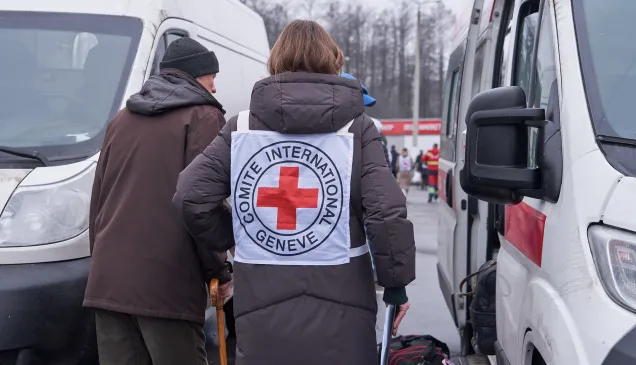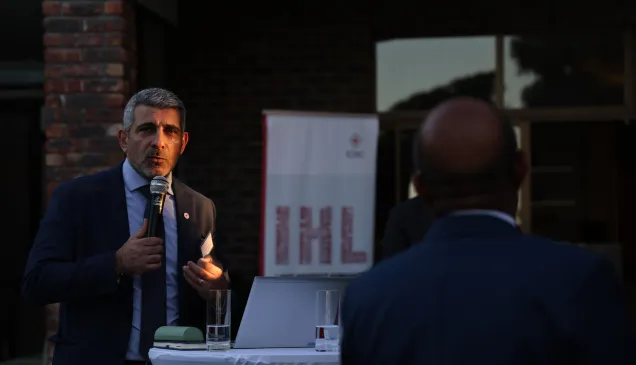On behalf of the ICRC, the IFRC and the National Red Cross and Red Crescent Societies, I will share with you our field experience on what we see as the double impact of climate change and armed conflict. I will also address how international humanitarian law (IHL) protects the environment.
The double impact of climate shocks and armed conflict harms people's ability to cope. Climate change exacerbates vulnerabilities and inequalities, especially in situations of armed conflict, where countries, communities and populations are the least prepared and the least able to protect themselves and adapt. Conflicts harm the structures and systems that are necessary to facilitate adaptation to climate change.
Last week, the ICRC's President Peter Maurer concluded an eight-day visit to the Sahel. In this area, armed conflict, deepening poverty, weakening public services, and disruption of traditional means of survival are not only due to conflict but also to diminishing usable land and unpredictable water resources. He saw first-hand, just as we see in our operations in other regions, that communities facing these dual challenges are disproportionately affected. They often face growing risks of flood or drought and are forced to look for new livelihoods, change their lifestyle or move away from their homes.
We also know that in armed conflict the natural environment or civilian infrastructure is often harmed or destroyed, which can in turn have environmental consequences that can contribute to climate change. While IHL does not explicitly address climate change, it does contain rules that protect the natural environment. For instance, IHL sets out protections for vital natural resources whose exploitation can have implications for climate risk. IHL also protects certain natural resources such as drinking water or agricultural areas as objects indispensable for the survival of the civilian population.
When discussing the impacts of climate-related disasters on international peace and security, we must consider how climate change can multiply people's vulnerability in situations of armed conflict. Indeed our own Movement's humanitarian response must be sensitive to this growing challenge and is involving local actors in disaster risk reduction and adaptation. This year, with the support of the Red Cross Climate Centre, we are convening a series of climate roundtables within the Red Cross Red Crescent Movement to address these issues. Also this year, the ICRC's legal division is revising the 1994 ICRC Guidelines for military manuals and instructions on the protection of the environment in times of armed conflict.
We look forward to continued dialogue with States and the United Nations on this critical matter.



